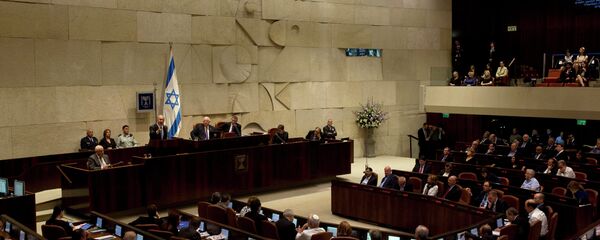So say the polls and, not surprisingly, so say his opponents.
"The majority of Israelis want change," said Yair Lapid, a former television news anchor and currently the leader of the centrist Yesh Atid (There’s a Future) Party. Should Netanyahu lose on Tuesday, the Yesh Atid Party is poised to play a pivotal role in forming a new government in the Israeli parliament. The party came in second in the last election and is expected to do the same or nearly as well in the March 17 vote.
"The Netanyahu era is coming to an end. That's not because security issues don't matter but because social and economic issues are dominating the agenda," he told Reuters. "Netanyahu missed his moment. You can't blame him — it's never easy to know when the moment of your era passes. But for him it has passed."
Lapid was Netanyahu’s finance minister, but was dismissed after repeatedly clashing with the prime minister over policy issues. Justice Minister Tzipi Livni also left, and her Zionist Union Party is running ahead in the polls. If that party wins, Livni would share the country’s most important elected office with Zionist Union leader Issac Herzog – he would serve the first two years while she would take the remaining two of the four-year term.
The majority of polls show that while most Israelis think security is an important issue, they also say the Netanyahu administration has not paid enough attention to the economy and jobs — Israel has had of late a rapidly increasing cost of living.
A majority was also against his traveling to the US recently to deliver a speech before Congress that railed against a proposed agreement with Iran over nuclear arms. The final polls published last Friday showed the Zionist Union Party holding a four-seat advantage over Netanyahu’s conservative Likud Party.
At a Sunday rally, Netanyahu warned his supporters of a possible loss or of having to form a government with parties that don’t necessarily support his agenda.
No party has ever won a majority in Israel, and with 11 parties running on Tuesday, there still is a possibility that Likud could end up forming a government as part of a coalition with some of the other parties. Lapid says the same holds true for his own party, in a bid to freeze out Likud from the majority.
Lapid adds that one issue his party – and any coalition he is a part of – would tackle in a new government is a revival of talks for an independent Palestinian state, a non-starter with Netanyahu and Likud.
"There is a wind of change, and if there is a wind of change on domestic issues, there is going to be a wind of change on Palestinian issues as well," said Lapid. "It's not something done in one leap, it's a triple jump, but it's coming."



